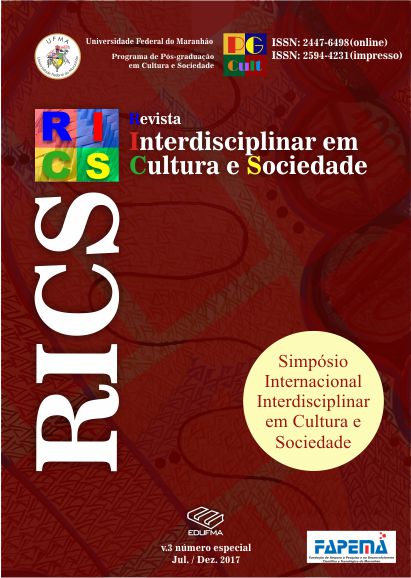O LUGAR DA MULHER NA LITERATURA FILOSÓFICA DE JEAN-JACQUES ROUSSEAU
Mots-clés :
Mulher. Literatura. Filosofia. Rousseau.Résumé
O presente texto se propõe a tratar da identificação do papel da mulher, de como ela é descrita, quais as funções que a figura feminina desempenha na literatura filosófica de Jean-Jacques Rousseau, destacadamente nas obras: Confissões, Júlia ou a nova Heloísa, Emílio ou Da Educação e Émile e Sophie ou Os Solitários. Rousseau inicia as Confissões dando destaque às recordações de sua mãe, repassadas por seu pai. A ela, atribui a sensibilidade adquirida, seguida das figuras da tia, da ama, da madame de Warens, uma criada e Sra. de Vercellis. Júlia é descrita como uma mulher sábia, forte, talentosa. Em torno dela, desenrolam-se as ações que dão curso ao romance. Sofia é a mulher ideal pensada para seu aluno imaginário, Emílio. Além de tornar-se sua esposa, ela se encontra sempre na posição de passar ao seu marido orientações categóricas na maioria de suas decisões, embora em os Solitários se separem, Rousseau a retrata como uma mulher virtuosa. Enfim, Rousseau caracteriza a mulher como afetuosa, afável, carinhosa, docemente sentimental, mas, ao mesmo tempo, um ser forte e virtuoso.
Palavras-chave: Mulher. Literatura. Filosofia. Rousseau.
THE PLACE OF WOMAN IN PHILOSOPHICAL LITERATURE BY JEAN-JACQUES ROUSSEAU
ABSTRACT: The present text proposes to deal with the identification of the role of women, how it is described, what functions the female figure plays in the philosophical literature of Jean-Jacques Rousseau, especially in the works: Confessions, Júlia or the new Heloise, Emilio or Da Educação and Émile and Sophie or Solitarys. Rousseau begins the Confessions giving prominence to the memories of his mother, passed on by his father. To her, she attributes the acquired sensibility, followed by the figures of the aunt, the mistress, the lady of Warens, a maid and Mrs. de Vercellis. Julia is described as a wise, strong, talented woman. Around it, the actions that give rise to the novel unfold. Sofia is the ideal woman thought for her imaginary student, Emilio. In addition to becoming his wife, she is always in the position of passing categorical guidance to her husband in most of her decisions, although in the solitaries they separate, Rousseau portrays her as a virtuous woman. Finally, Rousseau characterizes the woman as affectionate, affable, affectionate, sweetly sentimental, but, at the same time, a strong and virtuous being.
Keywords: Woman. Literature. Philosophy. Rousseau.
Téléchargements
Téléchargements
Publié-e
Comment citer
Numéro
Rubrique
Licence

Este trabalho está licenciado com uma Licença Creative Commons Atribuição 4.0 Internacional. Os autores da Revista Interdisciplinar em Cultura e Sociedade mantêm os direitos autorais.


















